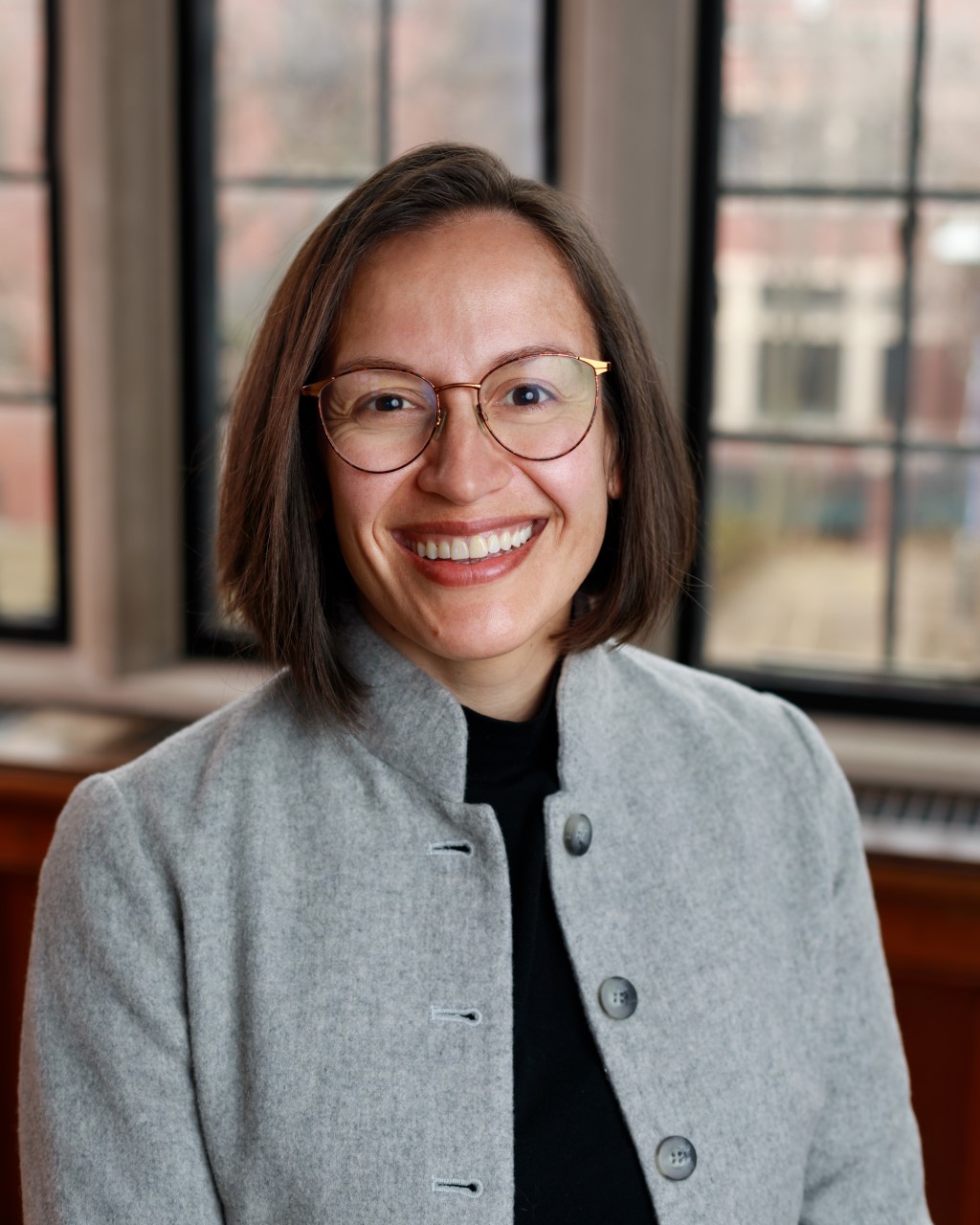
Biography:
Dr. Marisa Casillas is an Assistant Professor of Comparative Human Development at the University of Chicago. Trained in linguistics and psychology, she is interested in exploring how cognitive and social processes shape the ways in which we learn, perceive, and produce language. She uses a combination of experimental- and observation-based methods to comparatively investigate communication and language in both urban and rural contexts, with both children in and adults. Dr. Casillas and her lab—the Chatter Lab at the University of Chicago—work on these topics in populations around the globe. In the last few years, their work has taken place in: urban and suburban North American communities, urban and suburban communities in the Netherlands, a rural Tseltal Mayan community in Chiapas, Mexico, and in a rural island community in Milne Bay Province, Papua New Guinea. More information about current projects in her research group can be found at: https://chatterlab.uchicago.edu. This work has been collaboratively developed by Drs. Camila Scaff (University of Zurich), Ruthe Foushee (New School for Social Science Research), and Marisa Casillas (University of Chicago).
Project Title: Pilot-testing a cross-cultural field-friendly infant-directed speech preference paradigm
In the first year of life, infants develop a preference for infant-directed speech (IDS) over adult-directed speech (ADS)—this is one of the most robust findings in the developmental language sciences. Therefore, IDS has been proposed to play an essential role in child language development. However, cross-cultural work has shown time and again that children around the world hear different amounts of IDS, and they hear it from different talker types: some more often from adults and some more often from children. These observations complicate the claim that IDS universally drives children’s language development. We examine these ideas and more in four communities with distinct profiles of IDS amount (high vs. low) and source (adult vs. child) we examine two predictions: (1) a preference for IDS is present across all communities, but (2) infants prefer child-produced over adult-produced speech in communities where other children are their predominant interlocuters. Specifically, this project seeks to pilot-test a new method for examining this question, in situ, in the US, Bolivia, Mexico, and Papua New Guinea. The aim of this work is to critically re-examine one of the most well-known findings in developmental language science, taking inspiration from cross-cultural diversity in children’s early experiences.
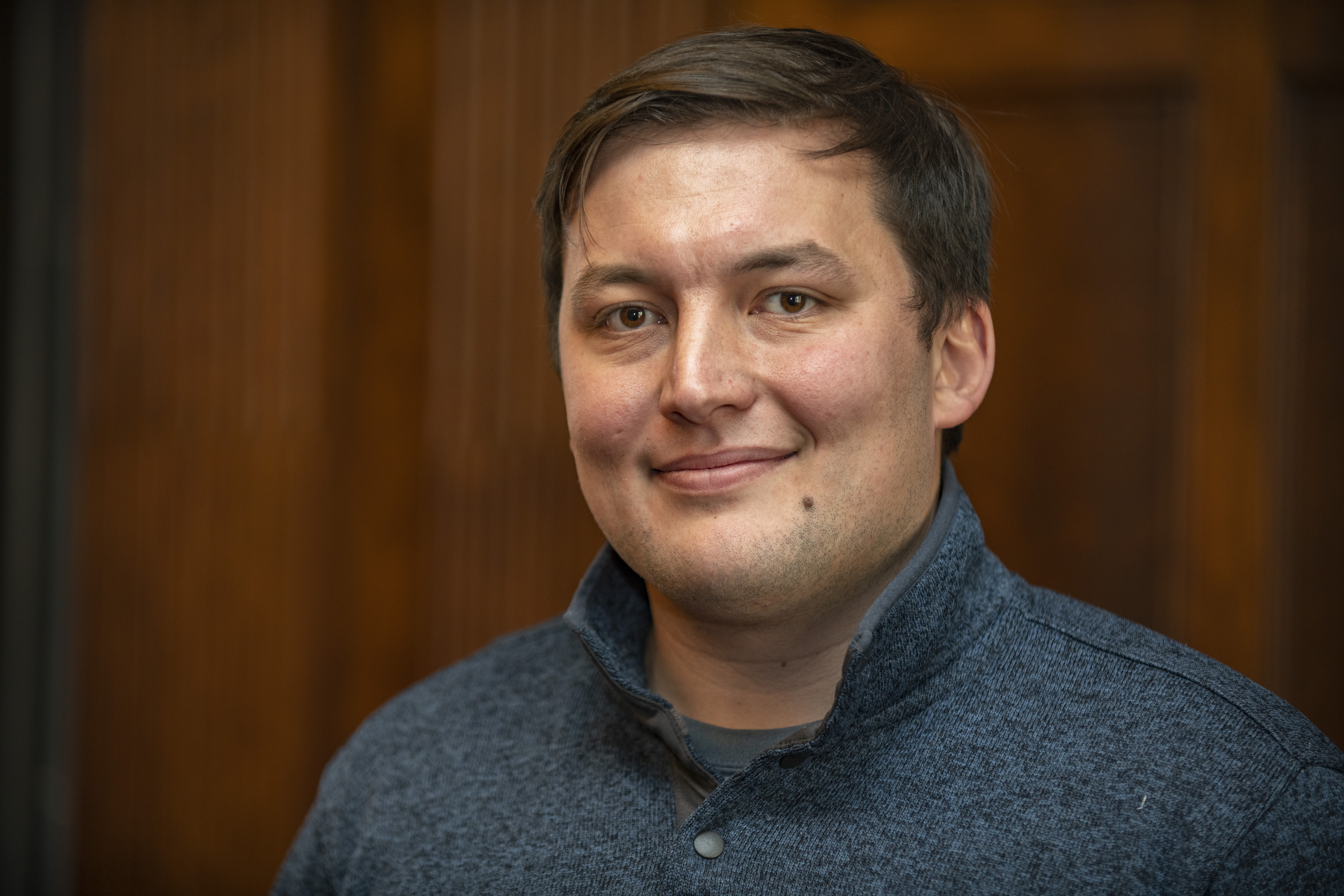
Biography:
Alex Koenig is a PhD candidate in the Department of Comparative Human Development (CHD). His research interests broadly include social and racial inequality in education, migrant and newcomer integration into schools, and the influence of participatory decision-making frameworks on public institutions. Alex uses a mix of qualitative and quantitative methods to investigate the ways in which institutions constrain or expand opportunities for young people at key moments of their emotional, social, and intellectual development. He is particularly interested in the ways in which borders and how communities define the collective ‘we’ influence school policies. Before UChicago, Alex served as a teacher and school administrator in Boston, Massachusetts and Tulsa, Oklahoma. He holds a Bachelor of Arts in Social Studies from Harvard University.
Project Title: Access or Exclusion? Administrative Barriers to School Enrollment for migrant children in Mexico
Abstract:
This project is a follow-up on field work conducted in Mexico City in the summer of 2023 and is part of my dissertation research. The funds will be used to conduct site visits to schools and interviews with school and community leaders in four cities in Mexico at the start of the 2024-25 school year. It will involve 1-2 weeks each in four cities – Mexico City, Puebla, Chihuahua, and Ciudad Juarez. My research is focused on identifying barriers to school access for migrant children in Mexico and is being done in collaboration with scholars at El Colegio Mexico (COLMEX) in Mexico City. The support of the CISSR Rudolph Field Research Award allows me to make in-person visits to my four research sites and collect baseline data for the start of the upcoming school year. Of primary interest to the study is the extent to which Mexican public schools have become accessible to migrant children and families following legislation in 2015 that guaranteed free education regardless of migration status.
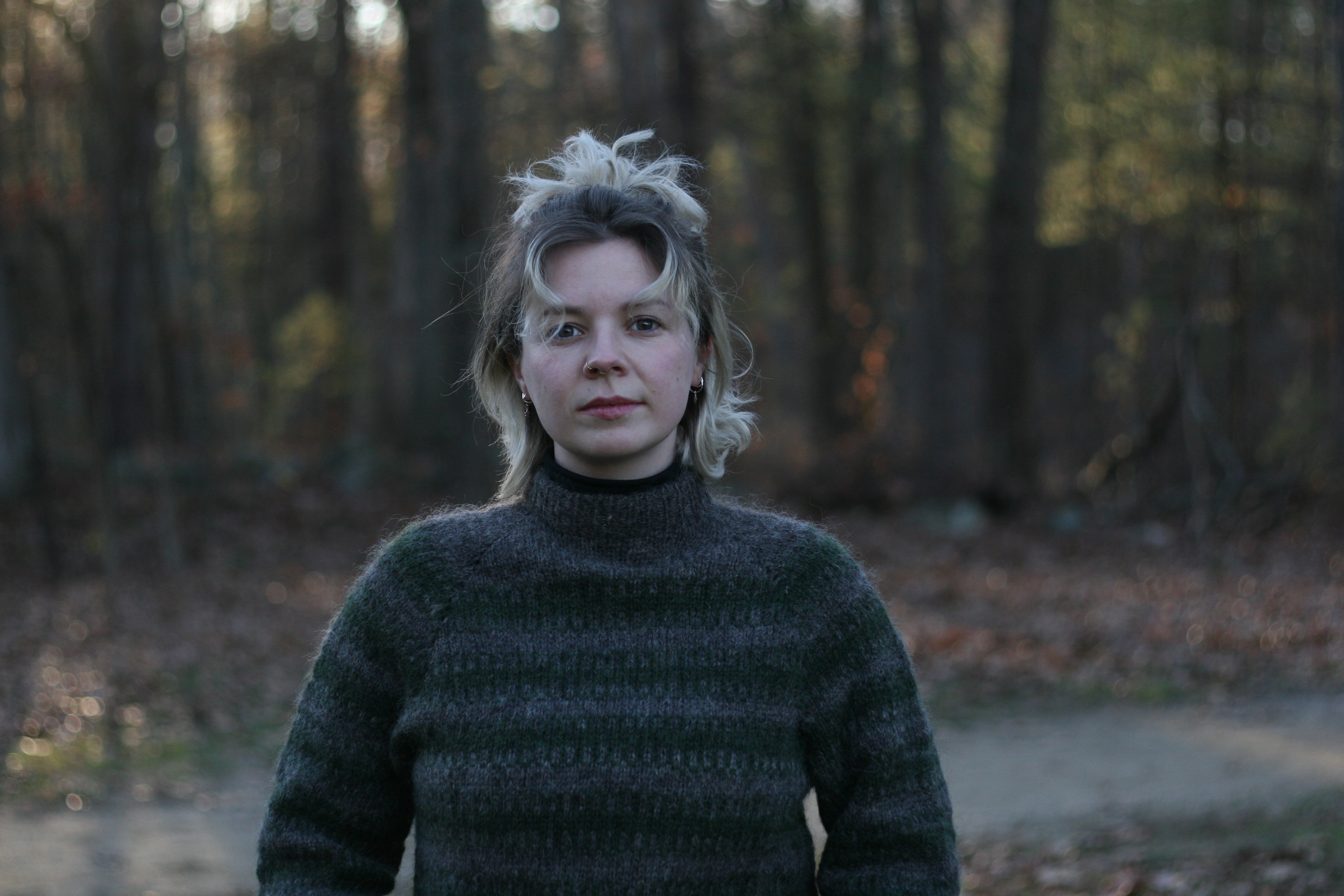
Biography:
I am a first-year PhD student in the Department of Comparative Human Development. I hold a B.A. in Anthropology and German Studies from Williams College and an M.A. in German and European Studies from the Georgetown Walsh School of Foreign Service. My research interests include the representation, participation, and exclusion of asylum seekers and refugees in social and political contexts, which I have examined through projects on art workshops for refugees, housing for asylum seekers, and the political participation of noncitizens in Germany.
Project Title: Welcome Home? Race, Representation, and Migrant Housing in Berlin
Abstract:
This research project aims to compare the ways that asylum seekers and refugees from Ukraine, Syria, and Afghanistan are differently “welcomed” in Germany, paying attention to racial, religious, and geopolitical distinctions that shape and are shaped by law and policy. It will examine differences in representations and attitudes toward asylum seekers and refugees facing forced displacement to Germany in the contexts of housing assignment and opportunities for non-formal political participation via migrant advisory councils.
Through qualitative research, including observations at housing sites and district-level migrant advisory councils, as well as semi-structured interviews, the project aims to understand the roles, expectations, and values of various stakeholders, including city officials, council members, community members, and residents. It will identify gaps in understanding and communication about migration and housing policies between policymakers and those whose experiences they impact. This preliminary research will lay the groundwork for a dissertation project on the racial and ethnic disparities in the social and political representation and participation of asylum seekers and refugees in Germany, as embedded both in formalized integration and housing policies and local level interactions.
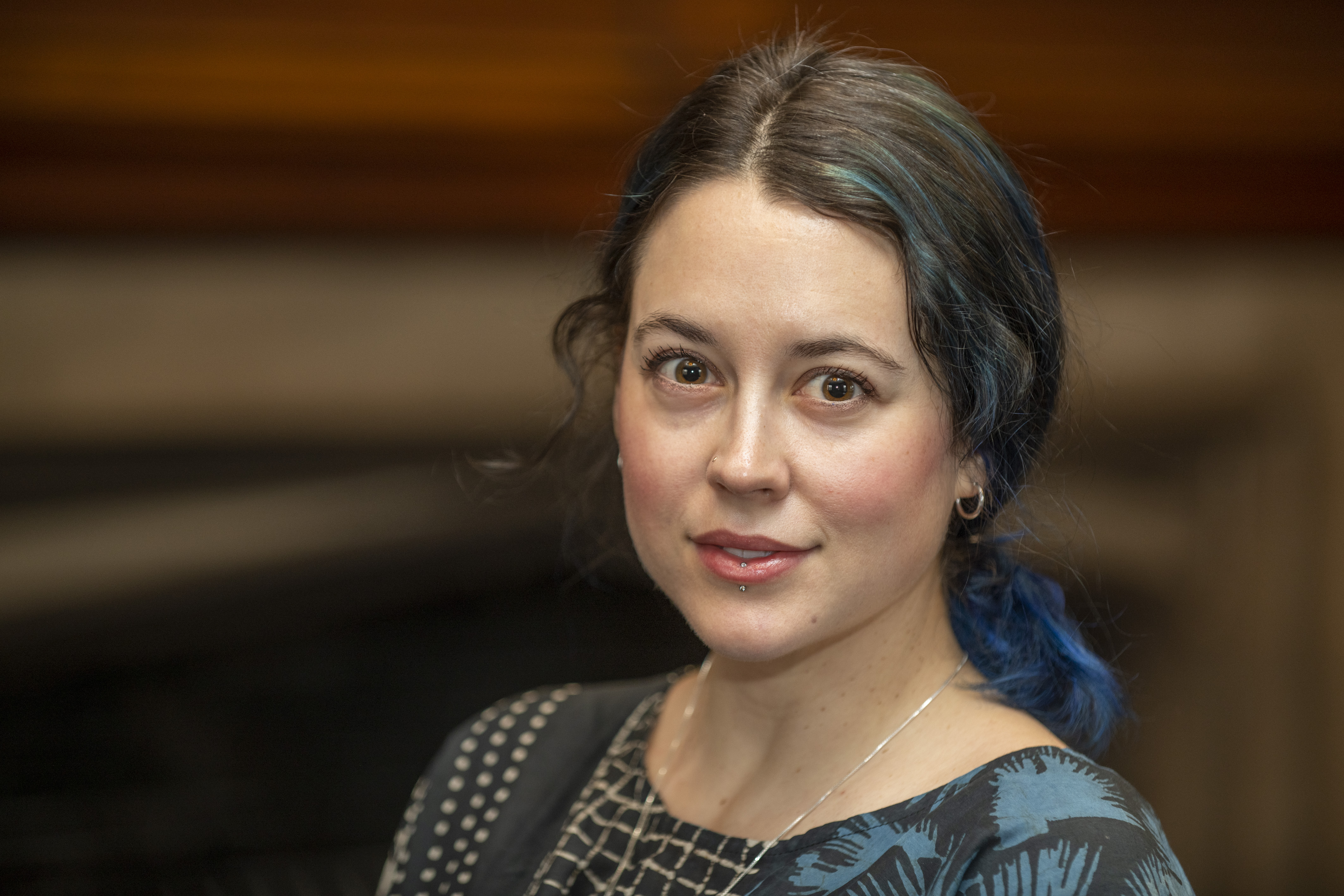
Biography
Lorna Hadlock is a PhD candidate and anthropologist in the department of Comparative Human Development. Her research focuses on indigenous Amazonian and Andean healing traditions and interactions between humans and non-humans as well as cross-cultural encounters. She is specifically interested in language use in those contexts. Through examining language use in healing and cross-cultural and cross-species contexts, her research contributes to theoretical discussions about both the agency of non-human actors and how language and culture influence experience, especially perception of altered states of consciousness and healing/illness. She is currently conducting ethnographic field research in Peru as a Fulbright Hays DDRA Fellow. She has also been the recipient of other awards including multiple FLAS Fellowships and research funding from the Center for Latin American Studies at the University of Chicago.
Dissertation: Called by the Plants: The multicultural, mutinatural world of humans and teacher plants in the Peruvian Amazon
In the Amazon jungle near Iquitos, Peru there is a tree called Noya Rao. Noya Rao means “flying (plant) medicine” in Shipibo, an indigenous Amazonian language, and indeed Noya Rao is believed by many Shipibo people to possess the remarkable ability to confer the power of flight onto humans who undertake to learn from her.1 Decades ago, at a time when many indigenous Shipibo believed she was extinct or merely mythical, a Shipibo master healer began a ritual practice referred to as a pipe “diet” with a pipe made from her wood. He ingested the smoke and prayed to her until she appeared to him and revealed her living location far from the Shipibo homelands of Ucayali. Today, the healer’s son-in-law runs an ayahuasca retreat center on the land where Noya Rao grows. Ayahuasca2 is a hallucinogenic brew used traditionally by Amazonian indigenous peoples and increasingly by foreign tourists who attend ceremonies at retreat centers focused on spiritual, physical, and mental healing. In the midst of the broader context of ayahuasca-based spiritual tourism in the area, some Westerners feel called to this corner of the world not by the lures of ayahuasca but by Noya Rao and the other teacher plants in her pantheon. They travel to the Amazon to fast and ingest an extract of Noya Rao, learn Shipibo songs to sing to her in ayahuasca ceremonies, and walk to her daily to sit at the base of her trunk and pray. Through this process (known as a plant diet, dieta in Spanish, or sama in Shipibo), they begin to communicate with her and cultivate metaphorical seedlings of Noya Rao inside their bodies, minds, and souls. My dissertation seeks to illuminate why Westerners are called to her and what world-making effect this pilgrimage has by examining Noya Rao and other teacher plants as agentic beings who communicate with and shape the humans in their world. Furthermore, this project explores this global impact and import of Amazonian plant diet pilgrimages as the global plant diet community grows and Westerners who learn this practice of dieting plants through Shipibo healers then go home to apply Shipibo dieting practices to plants in the U.S. or Europe. Through telling the stories of both Shipibo and Western dieters collected through 11 months of ethnographic fieldwork at both the center where Noya Rao grows and in Shipibo communities in the Shipibo homelands, I explore the teachings and behavior of teacher plants such as Noya Rao and others in her pantheon such as Bobinsana, Marusa, Chullachaqui, and Chiric Sanango. What can these Amazonian plants teach us about human social relations, bodies and healing, language, and the relationship between personal and political trauma? I investigate each of these areas to explain how: (1) plants and humans create new kinds of shared social worlds which challenge and contribute to ongoing debates about the relationship between nature and culture, (2) humans become hybrid human-plant bodies through digestive routines designed to remove humanity and inject plant essence, (3) new forms of human language and communication emerge via the intervention of the plants and the ritual sharing of Shipibo healing songs among Western and Shipibo dieters, and (4) plants guide healing on the individual but also structural and societal levels. The goal of this project is to provide a portrait of these teacher plants through the lens of human perspectives and interpretations that come with all of the expected human baggage - language, culture, individual experience. Just as a portrait of these plants will materialize, so too will insights about how culture, language, and individual experience shape how humans understand the plants and their messages.
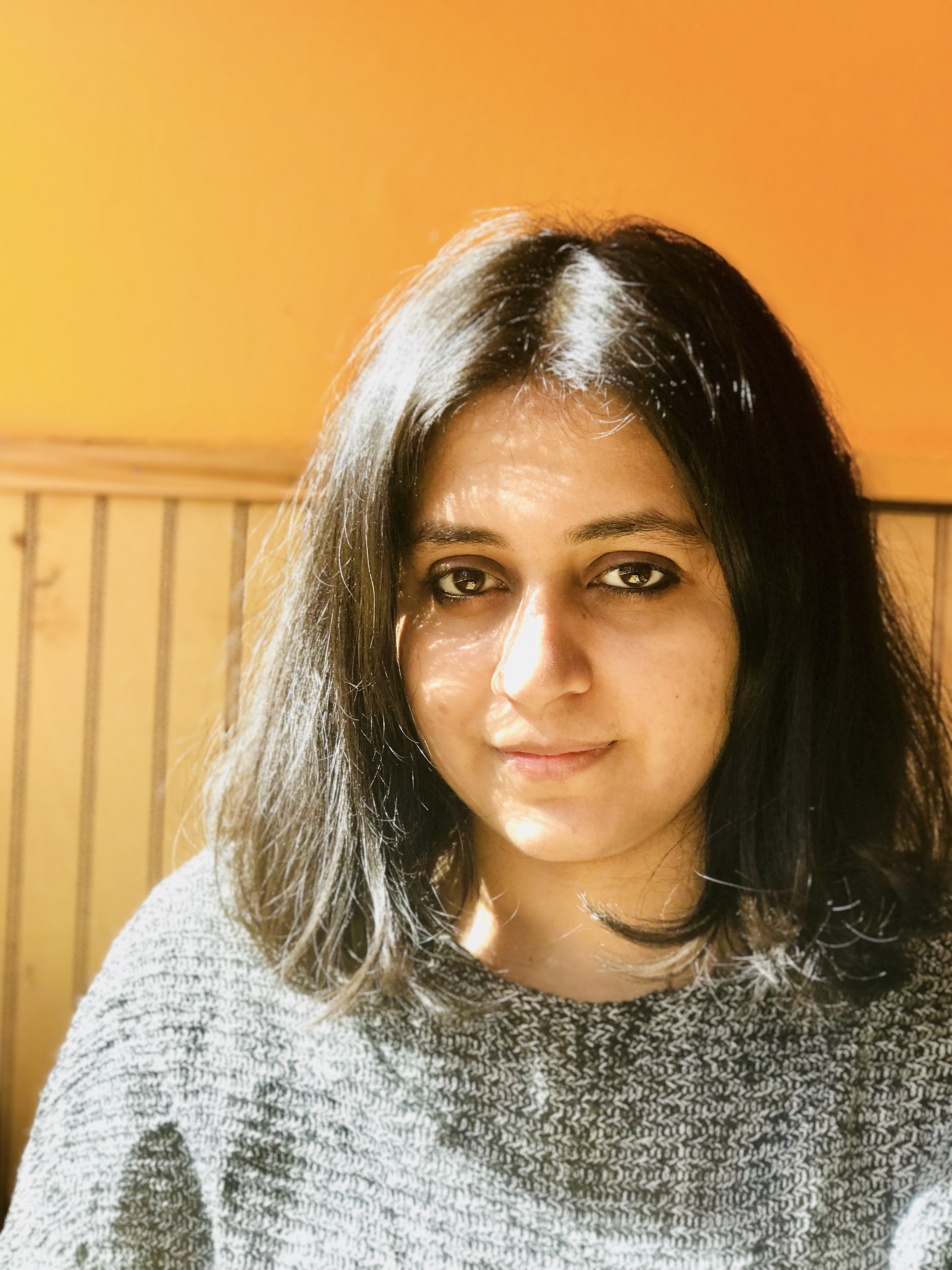
A rise in middle-classes is traditionally viewed as a positive force in democratizing political cultures. Contrary to this understanding, growth in the middle-class in postcolonial global south is correlated with democratic backsliding. In my field site India, social scientists observe a similar correlation. The Indian middle-class has grown five times in population between 2004 and 2014. This growth is correlated with the rise of the Bhartiya Janata Party known for propagating anti-democratic and authoritarian politics. Focusing on understanding why and how this correlation occurs, I use a person centered, qualitative and bottom-up approach to understand how the Indian middle-classes develop and maintain their political cultures? What kind of political identities do they espouse and to what extent can these cultures be characterized anti-democratic? My research has so far focused on studying how urban middle-class BJP supporters aspiring to cosmopolitan liberalism end up supporting conservative, illiberal politics. To expand the realm of middle-class political cultures, I am going to spend the summer interviewing and observing Aam Aadmi Party supporters (A centrist-populist party) in New Delhi to examine the kind of political ideas they find attractive.
Biography:
I am a PhD student in the Department of Comparative Human Development, operating at the intersection of political sociology and social psychology. I am primarily interested in how individual’s form their political and ideological identities and how their relationship with nationalism, nationhood and geographical identity is shaped over time. I have been thinking of these questions in the context of India. With it’s almost eighty years of ongoing project in nation building, the Indian state has recently seen a transition from secular to religiously nationalistic politics. Through a life history and life course lens, I study how Indians of several different kinds have lived through and participated in this transition and what we can understand about macro-level shifts in Indian politics by studying these individual political identity formations at the micro-level. A broader aim is to understand how political and social injustices persist in the face of modernization and liberalization of cultures under a nation state.
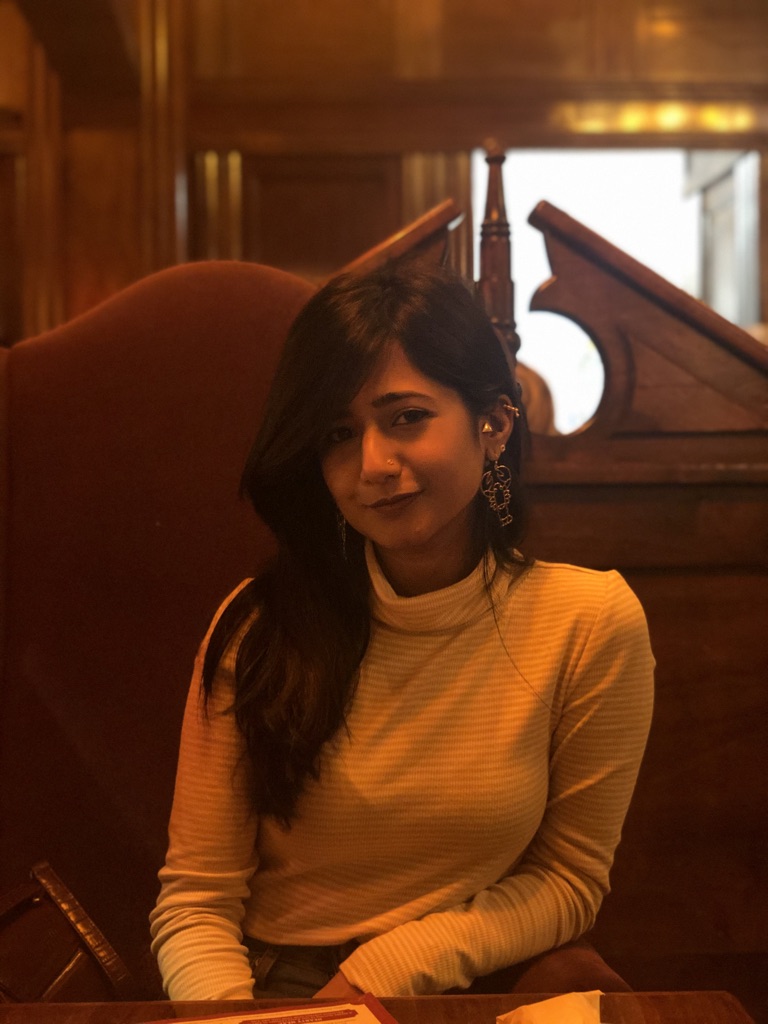
Most urban South-Asian households from middle-class and above employ some kind of domestic labor for assistance. But seldom are domestic laborers contracted with predetermined work hours and list of duties; instead, they are hired with a vague task of taking ‘care’ of the household. Such an arrangement breeds closeness between workers and their employers, who cook together in the same kitchen, watch the same daily soap operas, and share gossip about other households. Yet in a caste and class-conscious urban South Asia, such intimacy is entangled with status anxiety that is expressed through concerns about bodily hygiene, leading to the separation of materials and spaces that are accessible to domestic workers. My current proposed project aims to explore the multiplicity of ways in which the discourse on hygiene converses with existing cultural norms of caste-class-based purity and pollution to create and reiterate the separation of people, spaces, materials, and bodies in the homes of the urban middle-class in Karachi. By addressing the middle-class’ engagement with the discourse on hygiene and how it is both conveyed through and consRtuRve of materials and spaces in homes, the project hopes to lay out how contemporary notions of prescribed hygiene, in their presumed universality, are consistently shaped by such different cultural and class sensibilities to recreate existing structures of inequality.
Biography:
Ilqua LuJi is a second year PhD student in the department of ComparaRve Human Development. She
completed her undergraduate studies at the University of Virginia with a double major in South
Asian Studies and Global Development Studies. She received her MA degree from the University of
Chicago’s MAPSS program with Anthropology as her concentration. Her doctoral research explores
themes pertaining to intamacy, aesthetics, and hygiene in the context of domestic labor relations in
middle-class households in Karachi, Pakistan
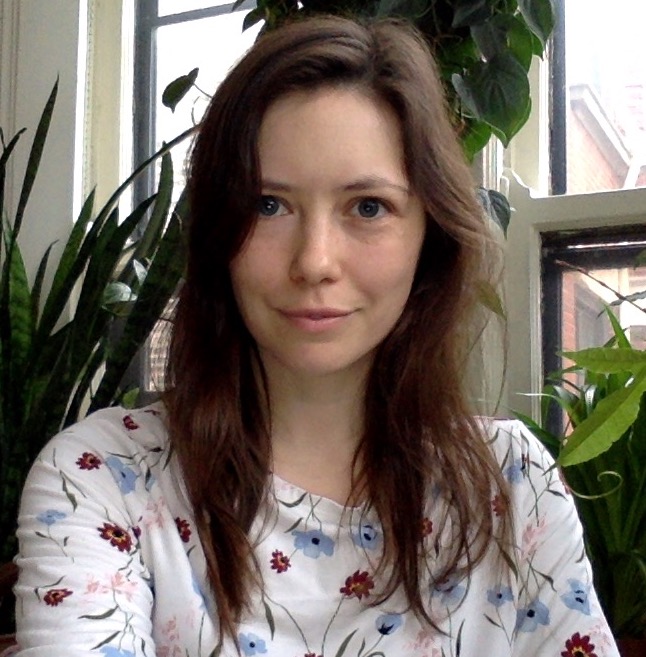
This stage of my dissertation research explores how several decades of European research on the external human ear have shaped contemporary practices of ear acupuncture, and energy-work of the ear more broadly, for substance abuse recovery in the US. I will follow researchers’ practices in Lyon, France, and other parts of Europe where energetic and electrical pathways of the ear are currently being investigated and mapped. Earlier work for this project involved following an informal network of individuals who were studying and practicing ear-therapies in makeshift free ‘clinics’ and recovery centers of rural New England, tracing their use of ear-maps and how these representations render a particular picture of the body/mind. Interviewing and following European researchers of auricular medicine will help me to better understand how this modality, which is adapted for local contexts shaped by the ‘opiate crisis,’ is formed across various time periods, geographic locations, and social relations. I will also browse maps of the auricle in the London-based Wellcome Collection – an archive of medical materials. This phase of my research would allow me to scale my project in creative ways, linking the local, lived realities of communities in rural New England to larger, transnational processes of knowledge production and circulation.
Biography:
Tracy Brannstrom is a third-year PhD student in Comparative Human Development. Her dissertation project explores the rise and evolution of ‘alternative’ forms of healthcare in the context of the ‘opiate crisis.’ She holds a Master’s degree in Folklore from the University of California, Berkeley, and an undergraduate degree in anthropology from Mount Holyoke College. Her research interests include experiences of illness and distress, mental healthcare, substance use, and efficacy and expertise in medicine.
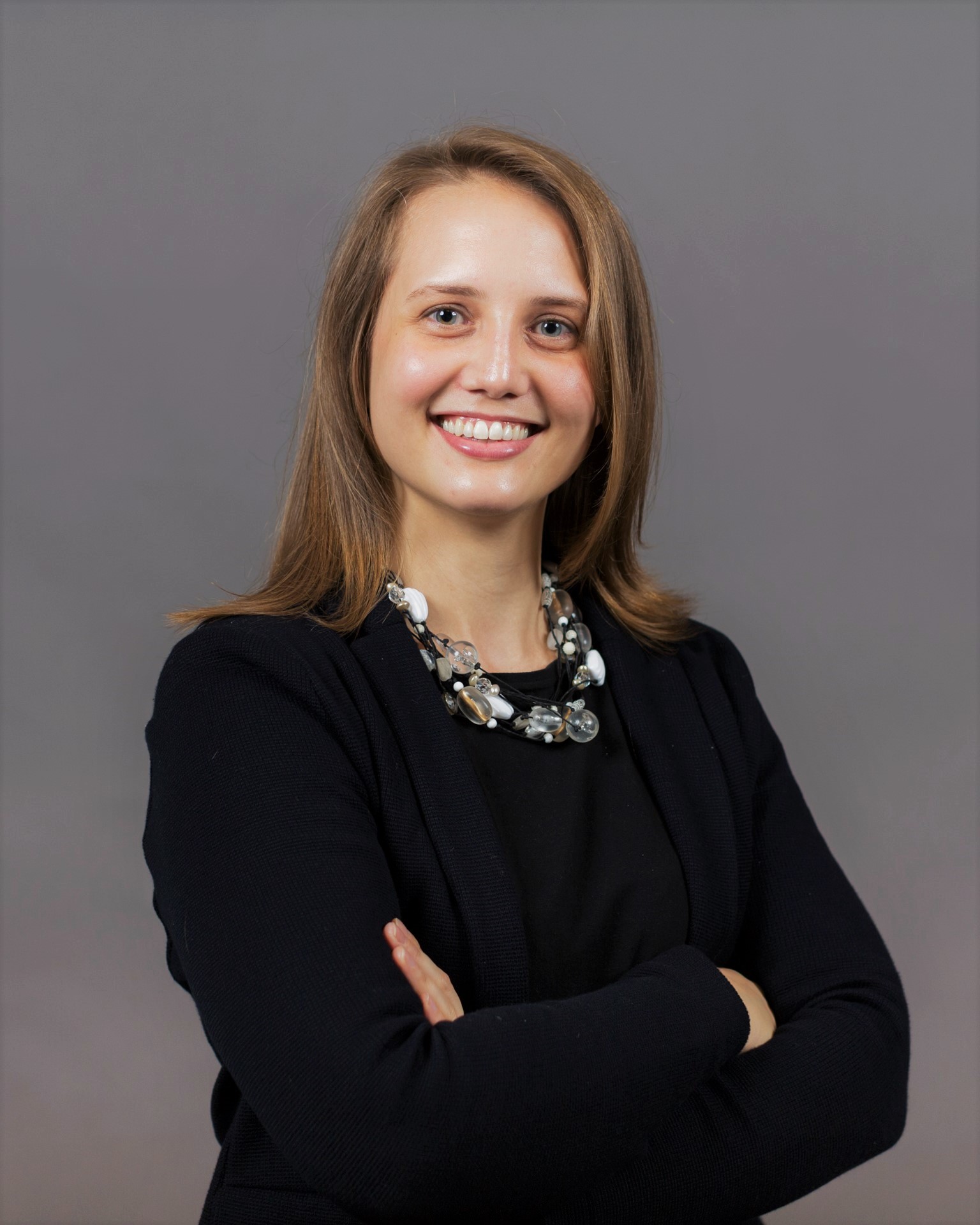
Emily Wilson’s dissertation examines the rise of a type of intergenerational volunteer care program in the United Kingdom called “homesharing.” In a homeshare, young people seeking affordable accommodations live with and provide volunteer care for elderly homeowners in exchange for reduced rent. These programs have developed across Europe in the past 20 years as nations seek out solutions to economic and demographic crises in care and rising housing costs. In England, homesharing is often promoted as a friendly and neighborly alternative to cold, bureaucratic care. This project investigates regional differences in how homeshare organizations operate across the UK, as well as the interpersonal dynamics that develop within homeshare relationships. How are dynamics of friendliness and neighborliness cultivated between strangers in the domestic sphere of the home? And how do homeshare organizations and stakeholders standardize friendly and neighborly care? This study builds on anthropological research on social reorganization, affective labor and care work, and studies of everyday domestic life. By bridging these three bodies of literature, I seek to understand the individual and collective experiences of volunteer social care.
Biography:
Emily Wilson is a PhD student in Comparative Human Development researching intergenerational care and social belonging. She holds a Master’s degree in Social Work (MSW) from the University of Michigan, where she specialized in social policy, organizational management, and housing and homelessness. She has been the recipient of multiple fellowships including the Society for Psychological Anthropology (SPA) Lemelson Fellowship and the Nicholson Graduate Research Fellowship.
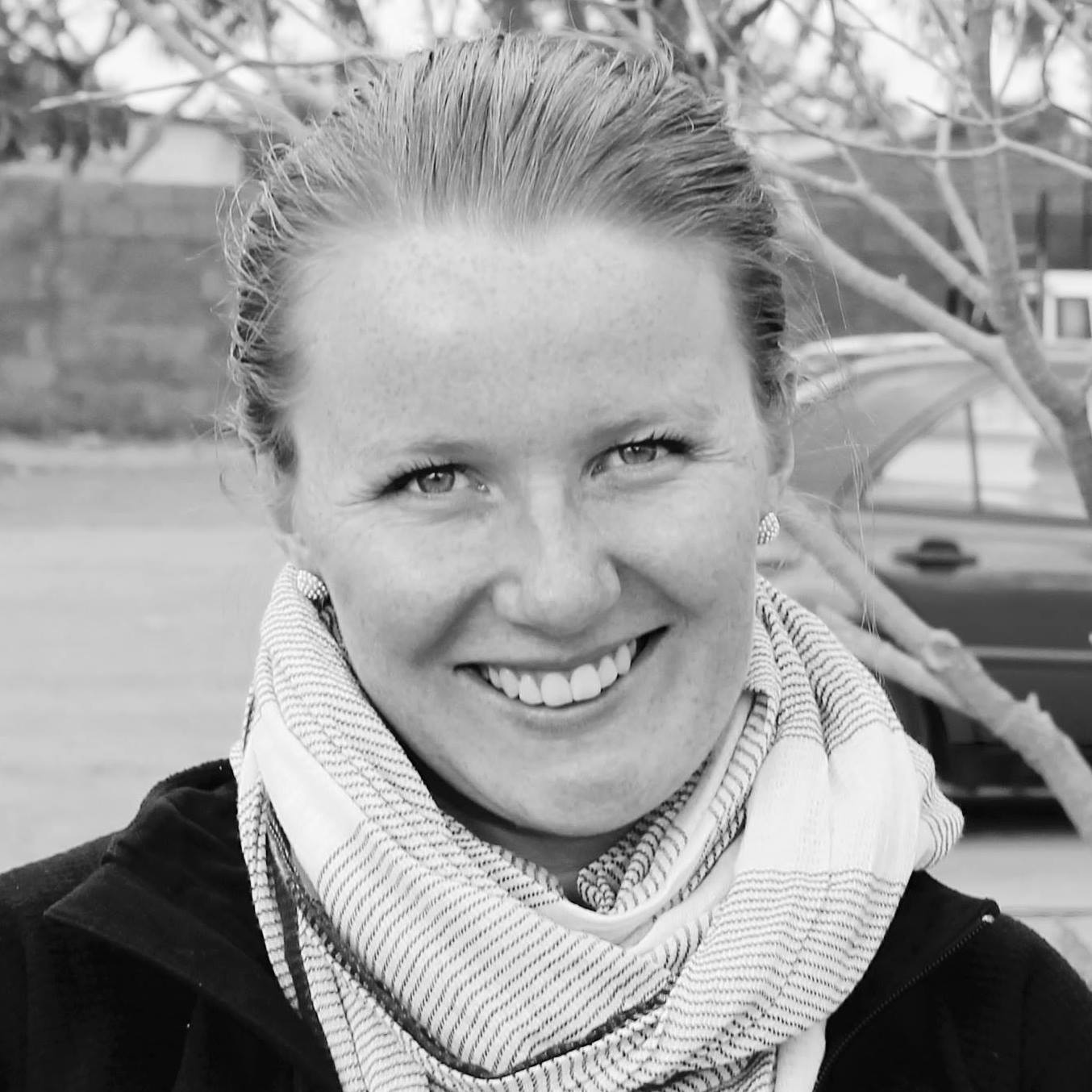
Biography:
Raffaella Taylor-Seymour is a UK-US Fulbright Scholar and PhD Candidate in the Departments of Anthropology and Comparative Human Development at the University of Chicago. She received her undergraduate degree in Archaeology & Anthropology from King’s College, Cambridge, and received the inaugural Fulbright-Diamond Family Foundation Award for research in Africa in support of her doctoral studies. Raffaella is the recipient of the Charlotte W. Newcombe Doctoral Dissertation Fellowship, the Association for Feminist Anthropology's Dissertation Award, the Association for the Sociology of Religion’s Joseph H. Fichter Award, and the Robert Lemelson Foundation Fellowship. At the University of Chicago she has been awarded the Bernice Neugarten Award and the Orin Williams Fellowship, and her field research has been funded by the Center for International Social Science Research, the Committee on African Studies, and the Pozen Family Center for Human Rights.
Dissertation: Intimate Rites: Localizing Queerness through Ancestral Spiritualities in Contemporary Zimbabwe
Raffaella’s research interests include the politics of gender and sexuality, religion and spirituality, subjectivity, and African Studies. Broadly, she is interested in the production of religious beliefs and practices, on the one hand, and changing cultural understandings about gender and sexuality, on the other. Her dissertation investigates these themes by examining how young people in Zimbabwe are developing new expressions of queerness through the reinvention of spiritual practices involving ancestors. In Zimbabwe, nationalist politicians and religious leaders frame same-sex intimacies as imports from the West, opposed to both African traditions and Christianity. In response, Western donors have poured millions into defending the rights of LGBTQ Africans, who they view as victims of religious and cultural persecution. Yet young queer Zimbabweans participate in and move between LGBTQ organizations, Pentecostal churches, and sites associated with traditional religious practices. Raffaella’s dissertation shows how young queer Zimbabweans are inspired by Pentecostalism to revive ancestral spiritual practices. In the process, she argues that queer Zimbabweans simultaneously remake ancestral spirituality through ideas taken from LGBTQ organizing and localize understandings of queerness in Zimbabwe.
Recent Research / Recent Publications
This dissertation investigates intergenerational memory practices and social transformation in post-genocide Rwanda. In recent years, concerns about psychosocial well-being of the youth born after the 1994 Genocide Against the Tutsi have spurred Rwandans of all ages to establish formal and informal intergenerational dialogues in which to discuss the past. Building on these observations, and drawing on studies of memory, generations, and post-conflict contexts, as well as initial fieldwork, my research explores how Rwandans are using memory practices to reconfigure social relationships, with implications for how “Rwandan” identity will be understood in the future. By memory practices, I refer to the material, affective, and semiotic processes through which memories are internalized, externalized, and rendered capable of circulating. I hypothesize that through such practices Rwandans negotiate a complicated relationship to the past to transform social boundaries and imaginaries. Tracking the work of official and unofficial memory practices within and across three multi-generational youth-focused organizations, as well as in popular media and at the level of policy, this project explores how “memories” are made tangible in the present and their import on social life. What practices enable individual and collective resolution after violence, and how do these practices change over time?
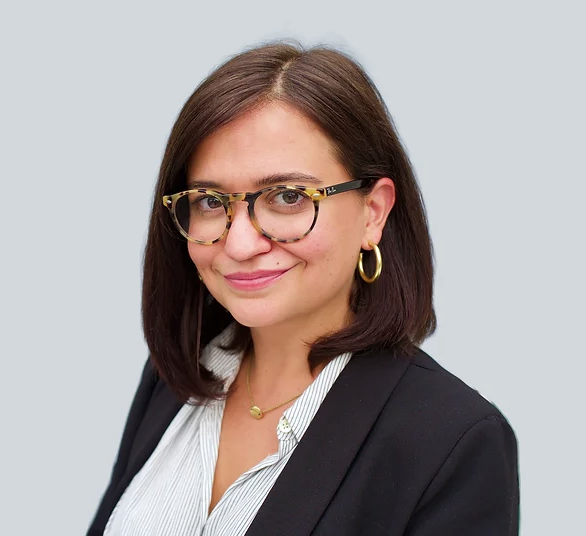
A Welcoming City? The Reception of Asylum-Seekers in Chicago
Over 20,000 mostly Venezuelan asylum-seekers have arrived in Chicago since August 2021 when Texas Governor Greg Abbott sent the first bus of asylum-seekers to the city as part of a political ploy to test the stated openness of migrant-friendly Democratic legislatures. In response, the City of Chicago bolstered its immigrant integration policies by vastly expanding asylum-seekers’ access to the welfare state, including by developing a brand-new shelter system to house new arrivals, which is separate from the network of existing homeless shelters and cannot be accessed by unhoused Chicagoans. This study is an urban ethnography of the City of Chicago that examines the experiences of asylum-seekers, as well as how the state, civil society, and residents have responded to new arrivals. Actions have ranged from providing housing, welfare benefits, and volunteer aid to the migrants, to organizing protests and appealing to the city to shut down shelters. Through observations in town hall meetings, neighborhood events, volunteer initiatives, police stations, and migrant spaces, as well as interviews with local residents of neighborhoods where migrant shelters have been opened, volunteers, and migrants themselves, we seek answers to the following research questions: (1) How do Chicagoans perceive and respond to the arrival of asylum seekers and city funded facilities to house them in their neighborhoods? (2) What role do existing axes of inequality–race, class, and gender— play in shaping grassroots responses to new arrivals, ranging from conflict to solidarity? (3) How are Venezuelan asylum seekers adapting to life Chicago?
Biography
Chiara Galli is Assistant Professor of Comparative Human Development at the University of Chicago. She received her Ph.D. in Sociology from the University of California Los Angeles in 2020 and was a postdoctoral fellow at Cornell from 2020 to 2022. She studies Latin American migration to the US, focusing in particular on the experiences of children and asylum-seekers, on how immigration policies shape migrants’ lives, and on the role of non-profits and volunteers in managing migration. She is the author of the book, Precarious Protections: Unaccompanied Minors Seeking Asylum in the United States (University of California Press. 2023), an ethnographic study that chronicles the experiences and perspectives of Central American unaccompanied minors and their immigration attorneys as they pursue applications for refugee status in the US asylum process. Currently she is working on two studies. First, with the support of the American Bar Foundation’s Access to Justice Scholars Program and in collaboration with Dr. Tatiana Padilla (Boston University), she is studying access to legal representation and determinants of case outcomes for unaccompanied minors in the U.S. immigration court using a large administrative dataset. Second, with a team of research assistants, she is conducting an ethnographic study on the reception of asylum-seekers in Chicago, with funding from the Center for International Social Science Research.